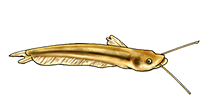Adolfoi or duplicareus
Adolfoi or duplicareus
Hi,
I bought these fish online, labelled C. adolfoi, but I doubt whether that is correct or not?
They are settling in at the moment so don't want to disturb them too much, hence the video and no close up pictures.
Thanks
Kasper
I bought these fish online, labelled C. adolfoi, but I doubt whether that is correct or not?
They are settling in at the moment so don't want to disturb them too much, hence the video and no close up pictures.
Thanks
Kasper
- Silurus
- Posts: 12420
- Joined: 31 Dec 2002, 11:35
- I've donated: $12.00!
- My articles: 55
- My images: 893
- My catfish: 1
- My cats species list: 90 (i:1, k:0)
- Spotted: 424
- Location 1: Singapore
- Location 2: Moderator Emeritus
- Coryman
- Expert
- Posts: 2119
- Joined: 30 Dec 2002, 19:06
- My articles: 12
- My catfish: 5
- My cats species list: 83 (i:0, k:0)
- My BLogs: 1 (i:0, p:1)
- Spotted: 194
- Location 1: Kidderminster UK
- Location 2: Kidderminster, UK
- Interests: Cory's, Loricariids, photography and more Cory's
- Contact:
Re: Adolfoi or duplicareus
It is not always easy to determine which of the two species you have just from a simple view, as both species can and do vary in colour pattern.
According to the description C. duplicareus has serrations on the posterior edge of the pectoral fin spine, whereas C. adolfoi does not. This of course is not easy to see in a normal aquarium. The best way to see if your fish have these serrations would be to place them into a shallow, preferably white, container and shine a light up from underneath. Then with the aid of a magnifying glass you should be able to see if there are any serrations or not.
As a general rule C. dupilcareus tends to be a little stockier than C. adolfoi and the black band is usually a little broader.
Ian
According to the description C. duplicareus has serrations on the posterior edge of the pectoral fin spine, whereas C. adolfoi does not. This of course is not easy to see in a normal aquarium. The best way to see if your fish have these serrations would be to place them into a shallow, preferably white, container and shine a light up from underneath. Then with the aid of a magnifying glass you should be able to see if there are any serrations or not.
As a general rule C. dupilcareus tends to be a little stockier than C. adolfoi and the black band is usually a little broader.
Ian
- apistomaster
- Posts: 4735
- Joined: 10 Jun 2006, 14:26
- I've donated: $90.00!
- My articles: 1
- My cats species list: 12 (i:0, k:0)
- My Wishlist: 1
- Location 1: Clarkston, WA, USA
- Location 2: Clarkston, WA, USA
- Interests: Aquaculture and flyfishing
Re: Adolfoi or duplicareus
You now know what they are.
I have a couple which have survived years longer than the rest of the original group of 12. Even when I have had larger groups they have always seemed to me to be a fairly shy species.
I noticed that tank raised stock is beginning to regularly show up on some dealers' lists. Maybe those would be less shy and hardier. All those I have had were easy to distinguish from C. adolfi but I have tried two different groups of 12 each and had difficulty keeping them long save for the two indestructible survivors I have had for about five years.
I have a couple which have survived years longer than the rest of the original group of 12. Even when I have had larger groups they have always seemed to me to be a fairly shy species.
I noticed that tank raised stock is beginning to regularly show up on some dealers' lists. Maybe those would be less shy and hardier. All those I have had were easy to distinguish from C. adolfi but I have tried two different groups of 12 each and had difficulty keeping them long save for the two indestructible survivors I have had for about five years.
Avid Trout fly fisherman. ·´¯`·...¸><)))º>
Re: Adolfoi or duplicareus
Thank you for your advise
I've had a closer look at the fish and they all have serrations on the posterior edge of the pectoral fins.
C. adolfoi or C. duplicareus - they're both nice fish.
Thanks
Kasper
I've had a closer look at the fish and they all have serrations on the posterior edge of the pectoral fins.
C. adolfoi or C. duplicareus - they're both nice fish.
Thanks
Kasper







